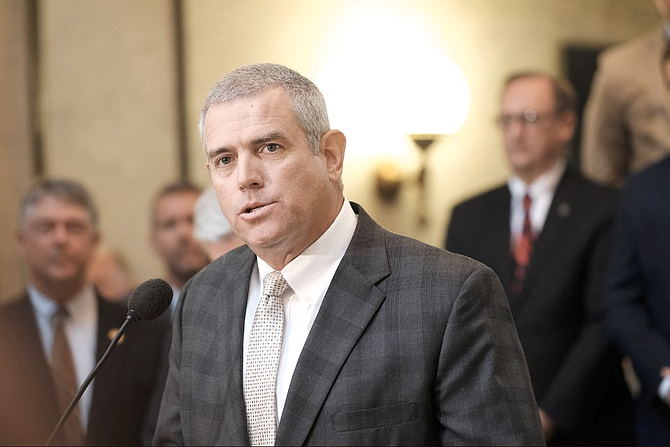Mississippi House Speaker Philip Gunn oversaw the passage of a law last year creating a state lottery in Mississippi. Photo by Ashton Pittman.
JACKSON, Miss. (AP) — The governing board for the upcoming Mississippi Lottery is setting rules for ethics and public records.
It is also taking steps to hire bankers to provide financial services and a person to run day-to-day operations.
Mississippi is one of the last states to create a lottery after legislators voted to do so in August, partly as a way to provide money to pay for roads and bridges.
Republican Gov. Phil Bryant nominated the five lottery corporation board members several months ago, and they were recently confirmed by state senators. Tickets for the game of chance could go on sale later this year.
Lottery corporation board members met Monday at the Balch & Bingham law office in Jackson and adopted rules that say many of the corporation's records will be available to the public. Exceptions include documents that would reveal trade secrets, lottery security or information from a confidential source about vendors or the qualifications or conduct of retailers that sell lottery tickets.
Board members also adopted an ethics policy that bans lottery directors or employees from having a financial interest in any vendor that does business with the lottery. The policy also says any employee, officer or director who leaves the lottery corporation must wait at least a year before representing any vendor or lottery retailer in front of the corporation or before accepting any employment with or compensation from any lottery vendor.
"Most of this is common sense," Lucien Smith, a Balch & Bingham attorney, told the board.
Also Monday, board members heard proposals from representatives of BancorpSouth and Hancock Whitney Bank. The board members said they will decide in the next few weeks on which bank will be awarded a financial services contract.
"These are both high-quality institutions, as far as I know," board member Gerard Gibert said.
The decision could be made at about same time that the board hires a president for the lottery corporation.
Copyright Associated Press. All rights reserved. This material may not be published, broadcast, rewritten, or redistributed.



Comments
Use the comment form below to begin a discussion about this content.